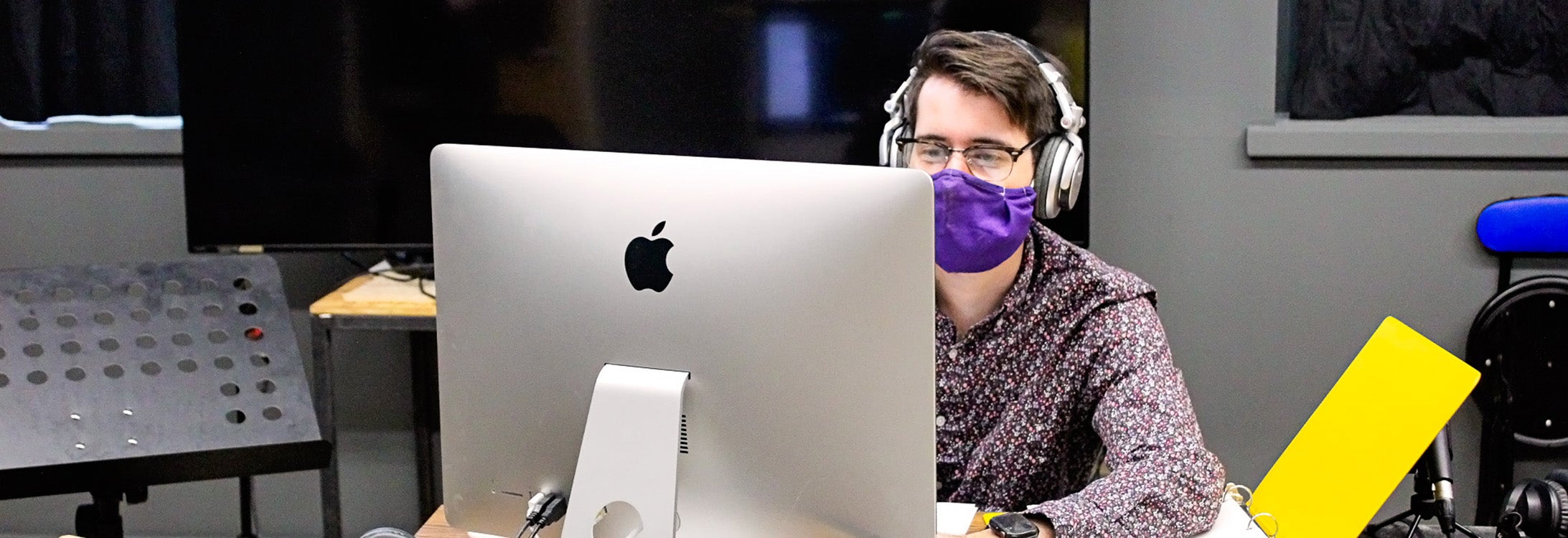CREATING AN IMAGE
Radio Plays invite listeners to immersive ECU performances
With live performances put on hold due to the coronavirus pandemic, East Carolina University’s School of Theatre and Dance faculty members decided to focus on what students could do rather than what they couldn’t do.
The result: The Radio Plays, a throwback to the ’30s and ’40s when families often gathered by the radio for entertainment. Four one-act plays by American writers will be presented by ECU students as audio productions beginning Oct. 23.
The performances will be streamed free but registration is required because space is limited.
“Radio dramas allow us to have a performative outcome for our students, advancing their professional skills while still engaging our patrons,” said Jayme Host, director of the School of Theatre and Dance. “Each of these plays is vastly different but (they) work very well together in a series.”
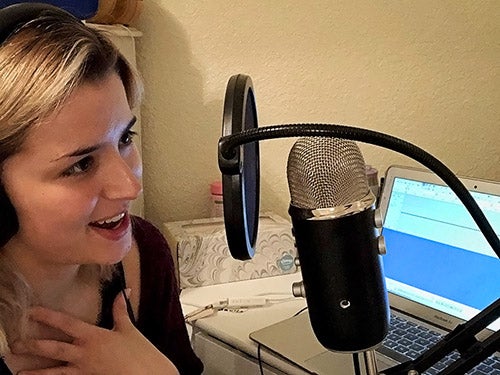
Student Emma Herlong records a play from her home.
VIRTUAL PERFORMANCES
Oct. 23-25 — “Blind Date” by Horton Foote
Oct. 30-Nov. 1 — “Trifles” by Susan Glaspell
Nov. 6-8 — “Florence” by Alice Childress
Nov. 13-15 — “Poof!” by Lynn Nottage
The virtual season starts with “Blind Date,” a funny look at what happens when a fluttery, well-meaning aunt tries to arrange a date for her uncooperative niece. “Trifles” is about a wife charged in the murder of her husband and the search for humanity. The third play is “Florence,” set in 1949 in a southern train station, providing an unflinching examination of racism in America. The final play, “Poof!,” sees a housewife reclaim her life after her abusive husband spontaneously combusts.
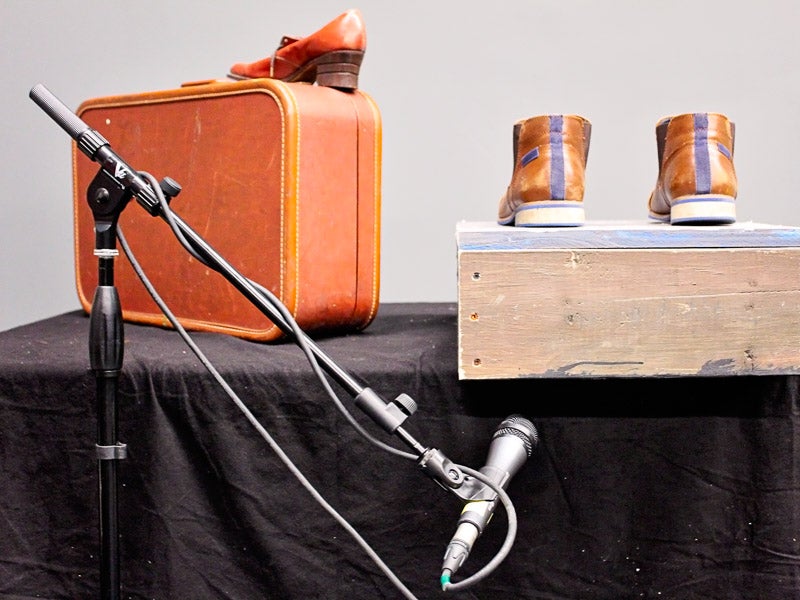
Props used for sound effects sit in Messick Theatre Arts Center.
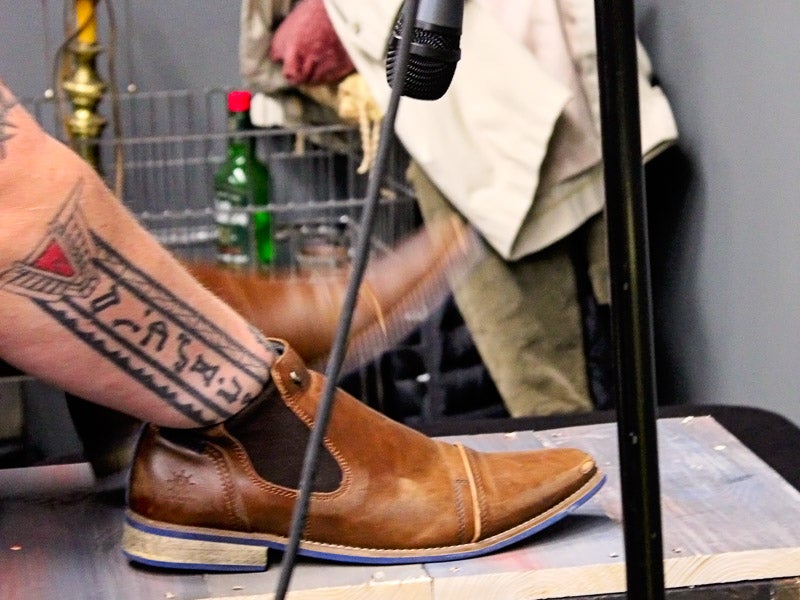
Shoes ‘walk’ across a wood floor.
The series’ stage manager is Kathryn Poulsen, a sophomore majoring in communication and theatre arts with a concentration in stage management. While the production is unique, Poulsen said her preparation was similar for previous plays. The cast worked as a repertory company, with eight actors and six understudies. Most students are in two of the four shows.
“I still created the same paperwork and led rehearsals, but everything was online,” Poulsen said. “Since this show wasn’t set on stage, I didn’t have to track the actors’ movement or what set changes happen.”
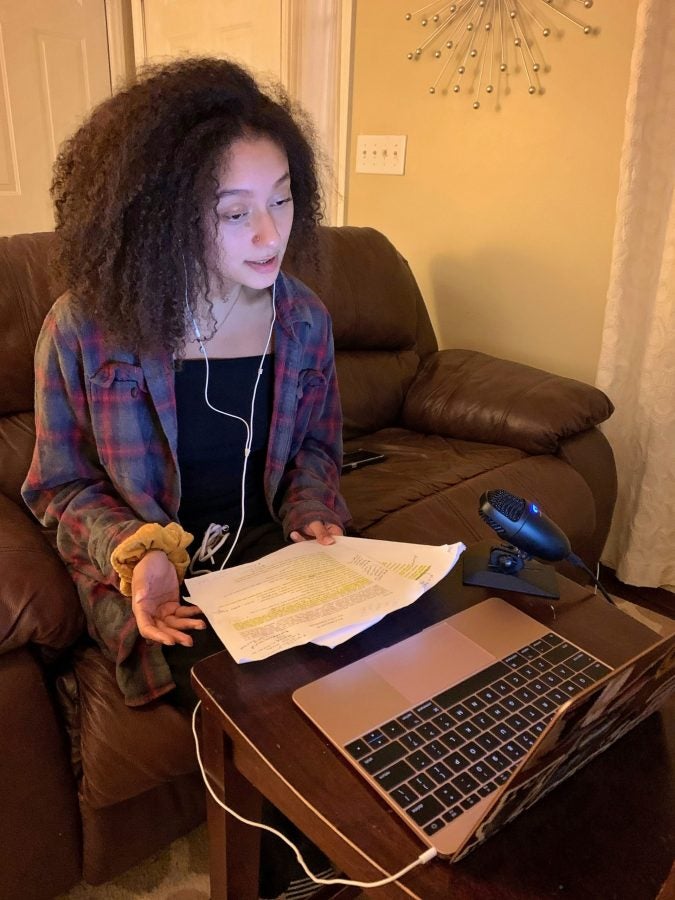
Cast member Tatiana Burrus records in her home.
Poulsen and assistant stage manager Hailey Arnett made sure that student actors had the equipment needed to practice and record themselves from home. ECU faculty director Bryan Conger worked with sound designer Michael Shoaf to create sound effects, from the clip-clop of footsteps to the stirring of pots and pans, recorded on campus in Messick.
“I hope the audience can really enjoy how immersive podcasts are. If you close your eyes while watching, the actors acting and the sound effects will create the image in your head,” Poulsen said. “It’s important in this changing environment to continue making art for everybody who needs it.”
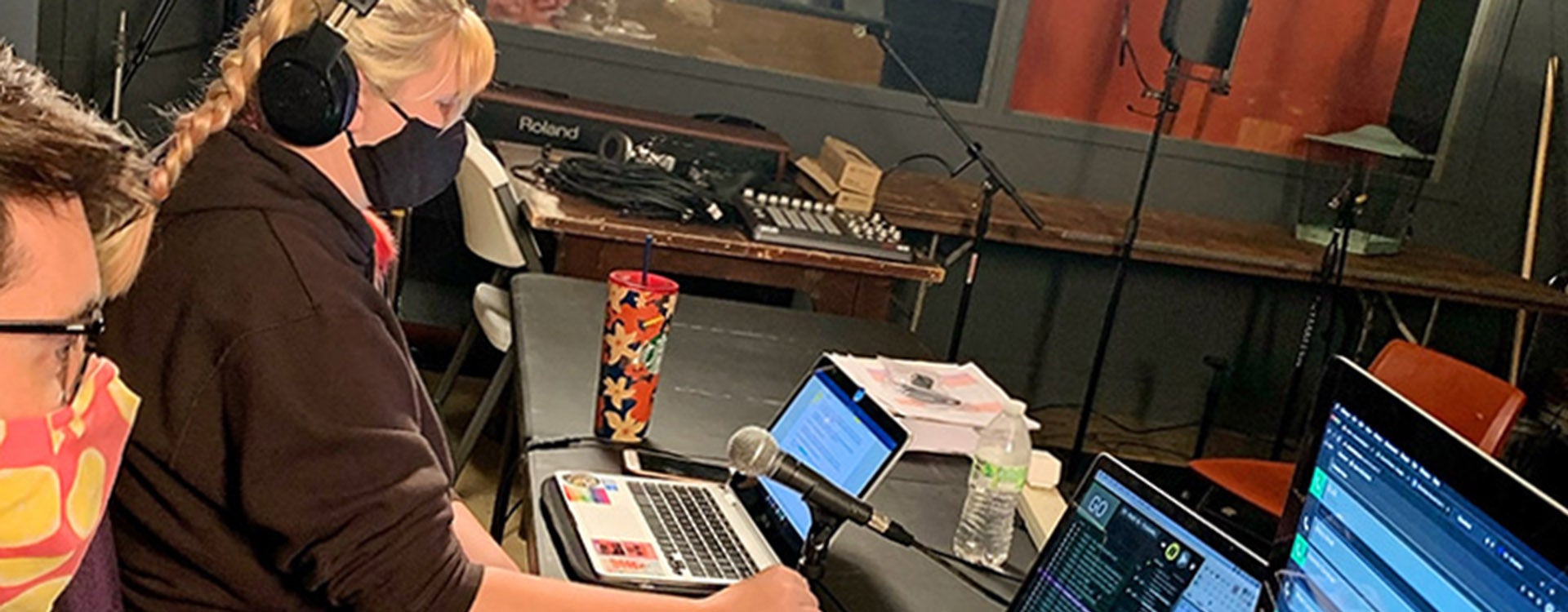
Sound designer Michael Shoaf, left, and stage manager Kathryn Poulsen record The Radio Plays from the ECU School of Theatre and Dance studio.
